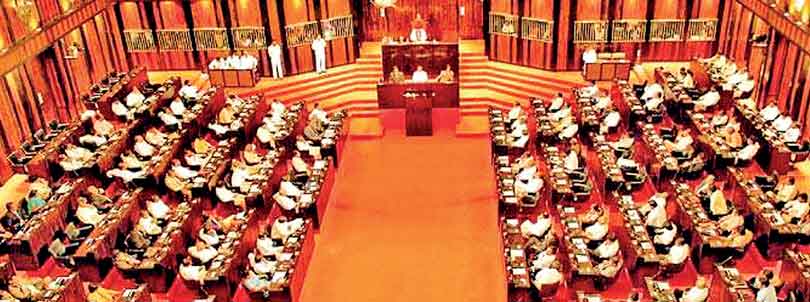Friday Feb 20, 2026
Friday Feb 20, 2026
Tuesday, 10 December 2024 01:39 - - {{hitsCtrl.values.hits}}

By implementing reforms to strengthen governance, improve public institutions, and foster economic self-reliance, the Government can mitigate some of the risks posed by the agreements
 Sri Lanka finds itself at a pivotal moment as President Anura Kumara Dissanayake announced that the country aims to complete its debt restructuring agreements by December 2024, with plans to resume loan repayments in 2028. The National People’s Power (NPP) Government has inherited an agreement with the International Monetary Fund (IMF) that Ranil Wickremesinghe and his Government burdened the country with which is potentially deleterious. Within that context the timeline is ambitious to navigate the complex web of economic recovery, social protection, and political consolidation. Despite the serious shortcomings of these agreements, the Government needs to take calculated measures to stabilise the nation in pragmatic ways.
Sri Lanka finds itself at a pivotal moment as President Anura Kumara Dissanayake announced that the country aims to complete its debt restructuring agreements by December 2024, with plans to resume loan repayments in 2028. The National People’s Power (NPP) Government has inherited an agreement with the International Monetary Fund (IMF) that Ranil Wickremesinghe and his Government burdened the country with which is potentially deleterious. Within that context the timeline is ambitious to navigate the complex web of economic recovery, social protection, and political consolidation. Despite the serious shortcomings of these agreements, the Government needs to take calculated measures to stabilise the nation in pragmatic ways.
The debt exchange proposal
Sri Lanka’s announcement inviting International Sovereign Bond (ISB) holders to exchange $ 12.55 billion of bonds for new instruments by 12 December 2024, marks a critical juncture in the ongoing debt crisis. This proposal stems from a hastily negotiated agreement finalised on 19 September 2024, by the previous Government. Viewed as a politically expedient pre-election manoeuvre, the agreement prioritised bondholders’ interests over those of the Sri Lankan people, jeopardising long-term debt sustainability and economic recovery.
How Sri Lanka arrived here
Sri Lanka’s sovereign default in 2022 was the culmination of decades of fiscal mismanagement under successive Governments. Reckless dollar borrowing, ineffective economic policies, rampant corruption and governance failures under presidents such as Mahinda Rajapaksa, Maithripala Sirisena, Gotabaya Rajapaksa, and Ranil Wickremesinghe contributed to the crisis. These leaders also contributed to long term structural imbalances leading to balance of payments vulnerability which was aggravated (rather than corrected) by the embrace of neoliberalism since the late 1970s. The IMF-backed restructuring deal negotiated by an unelected interim government failed to prioritise the well-being of Sri Lanka’s citizens, instead entrenching external creditors’ interests and perpetuating fiscal vulnerability.
Flaws in the agreements
The restructuring agreements devised by the previous administration were deeply flawed:
Imperfect options for the new Government
The new Government faces unenviable choices regarding these current multilateral, bi-lateral and bondholder agreements. The main options open to the Government are:
Prioritising pragmatism
Given these constraints, the Government has limited options other than to agreeing to the existing agreements pragmatically – despite the risks involved. Approaching the agreement in this way buys critical time for the Government to stabilise its political footing and craft its first Budget. Adopting the current deal enables the Government to focus on key priorities, such as:
The economy is a critical priority, demanding transformational change to achieve sustainable and equitable development. This entails readdressing the IMF program and redefining engagement with the global financial architecture. However, meaningful progress can only begin once the NPP leverages its strong political mandate to consolidate power and implement key institutional reforms.
Sri Lanka’s recovery will require bold leadership, strategic vision, and a commitment to the well-being of its people. While the IMF and Bondholder agreements are far from ideal, they provide an imperfect foundation which the Government is compelled to build on.
The path forward – addressing structural flaws
Long-term recovery depends on addressing systemic issues that perpetuate cycles of crisis:
Building resilience
By implementing reforms to strengthen governance, improve public institutions, and foster economic self-reliance, the Government can mitigate some of the risks posed by the agreements. Prioritising import substitution, bolstering exports, and reducing dependency on volatile financial instruments will enhance economic resilience.
The IMF must be held accountable if its flawed DSA continues to limit the Government’s ability to address Sri Lanka’s critical development needs and provide adequate social protections for its people. A sustainable recovery requires the IMF to adopt a framework that aligns with the realities of developing nations, emphasising the need for equitable fiscal space to promote growth and alleviate poverty.
To achieve true sustainability, it is essential that Sri Lanka’s external debt stock will need to be reduced to a manageable level. This requires a genuine commitment from all stakeholders, including the IMF, to revisit and rectify the structural imbalances within the existing agreements. Without substantial debt reduction, Sri Lanka risks perpetuating a cycle of dependency and fiscal vulnerability, undermining its capacity to deliver essential services and build long-term resilience.
The need for national unity
The Government’s decision to proceed with the existing agreements represents a pragmatic compromise in a challenging environment. However, the success of this approach depends on collective resolve. Sri Lanka must rally behind its leaders, supporting transformative reforms that prioritise people over profits.
While the path ahead is fraught with challenges, Sri Lanka’s new Government has an unprecedented opportunity to redefine the nation’s trajectory and mitigate risks posed by the unjust global economic order. By addressing structural flaws, implementing bold reforms, and uniting its people, Sri Lanka can emerge stronger, more equitable, and better equipped to navigate future challenges.
(The author is a co-founder of the Institute of Political Economy (www.ipe-sl.org) and a former elected Local Councillor for London in the United Kingdom. The article reflects the personal views of the author and not that of the IPE. He could be reached via email [email protected].)